July 28, 2025
The administration knows that subduing history as it is doing works to keep people of color in this country disunited and at odds with each other.
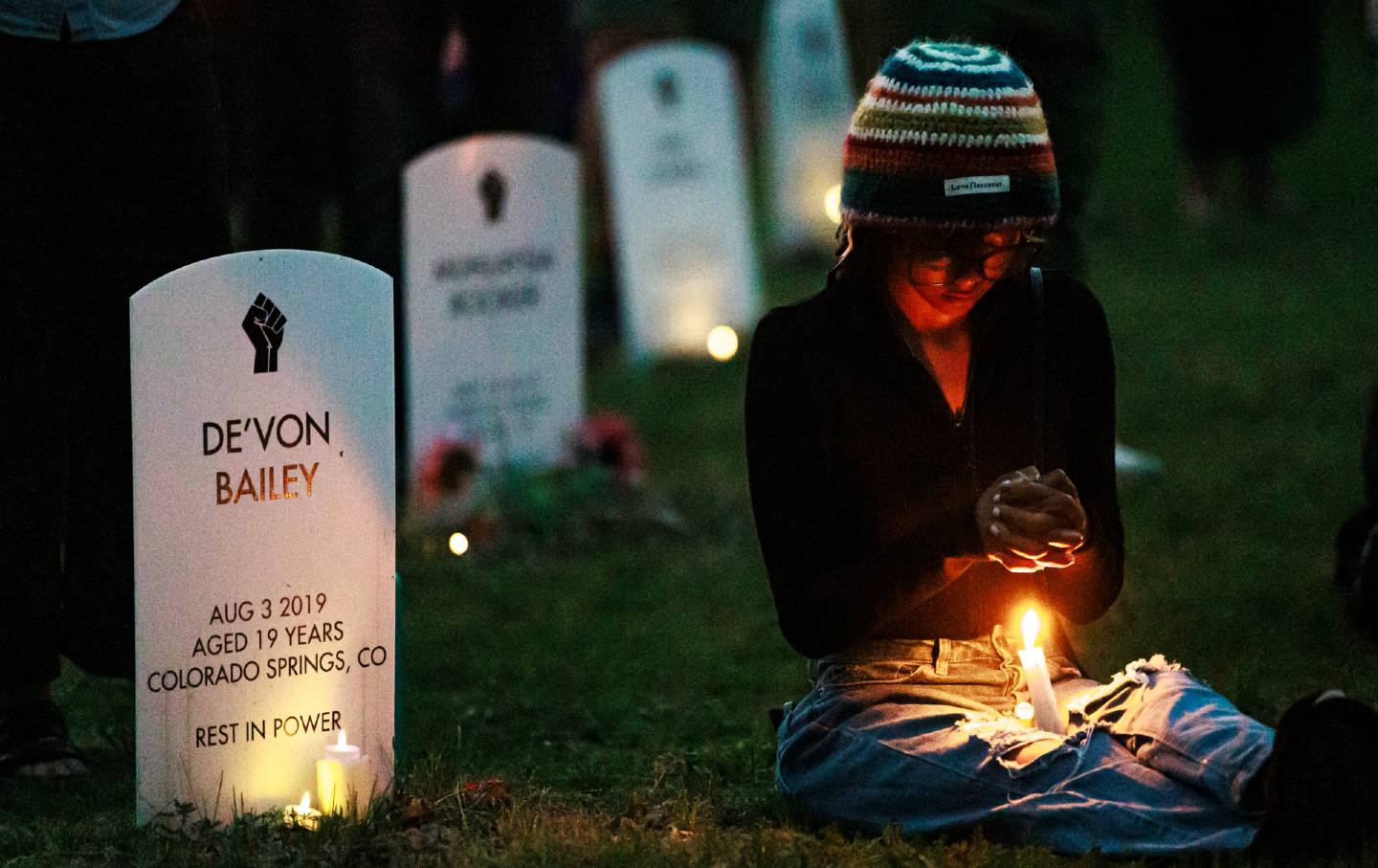
Reading Candacy Taylor’s Overground Railroad: The Green Book and the Roots of Black Travel, I ran across this absurd remnant: In the 1950s and ’60s in Pasadena, California, Black people were banned from many public swimming pools except on “International Day.” Despite the reality that well north of 90 percent of Black Americans were native to the United States at the time, they were placed alongside marginalized, maybe even newly arrived immigrants into a second-class category, Americans for sure, but emphatically disallowed the privileges due white people, and not at all citizens of the country that they called home.
It has never been easy to be both Black and American, but today, as the Trump administration attacks the human rights and resident or citizenship status of immigrants, native-born Black Americans find ourselves vying against our government in order to invoke our history to understand this moment, while oscillating between the allyship which is the best antidote to MAGA’s assaults and some “I told you so” cynicism.
It is that latter oscillation that I find myself struggling against as I doomscroll down the injustices, ICE raids, that omnipresent Kristi Noem ad, the BBB’s tax breaks for the ultra-wealthy, cuts to Medicaid and food assistance. Christine Greer’s op-ed “Black Americans Are Not Surprised” explores this tendency, reporting on the postelection exhaustion of Black folks, 83 percent of whom voted for Kamala Harris, only to see Trump elected again. As the Trump administration’s agenda intensifies, it isn’t hard for us to side-eye many of our fellow Americans who are now expressing such surprise and belated anguish. Yet there’s more to that sideways look than “I told you so.”
At the same time that the administration has set out to violently suppress immigration legal and undocumented, it has also taken aim at sites where Black American history is disseminated, from government web pages to school classrooms. This is not only authoritarian overreach but evidence of institutional cowardice, the imposition of raw power over the realm of ideas. MAGA’s intersectional attacks are no accident, of course, for it is Black (and Indigenous) American history and the transhistorical consciousness that our history begets which makes comprehensible our current crisis.
Black history is, in part, a record of this nation’s limitations, the lines that have been drawn to determine who is and is not American, who is and is not a free citizen. It’s sometimes tricky for me, a Black professor at a university that is neither a PWI (predominantly white institution) nor an HBCU (historically Black college/university), but instead where the student body is 36 percent Asian, 28 percent Latino, and 10 percent nonresident alien, to explore in the classroom space the limit points of this land. My students’ families, most of them anyway, arrived in the United States postbellum and many since the civil rights movement, often in an escape from communist governments. Historical references to the US’s foundational atrocities do not fit comfortably within a US-as-democratic-savior frame. Especially at our location at the epicenter of Silicon Valley, it is very easy for me and for them to submit to Big Tech’s accelerationist, hyper-capitalist MO that holds history irrelevant as we race forward toward an ever-better future.
Yet our past has a way of returning. We sometimes find that we can’t go forward, or even sit comfortably where we are in class, without looking back. This administration’s assaults are not abstract political issues to my students, but absent our history they can too easily be seen as an aberration, the product of Trump’s obscene politics alone.
Current Issue

The 14th Amendment, which originally granted birthright citizenship to formerly enslaved Black Americans, is one point of political pressure today as the Trump administration seeks to rewrite citizenship laws. It is too easy for MAGA to argue that this statute was meant solely for a non-immigrant group and thus should not be leveraged by immigrants, facing deportation, to attain citizenship. This argument ignores not just that Black people were not deemed citizens pre-Reconstruction but also that powerful forces in this nation wanted us gone. Commentators have cited the Immigration Acts of 1924 and 1965 as definitional points in our immigration history, the former having prohibited all Asian immigration while harshly restricting Southern and Eastern European immigration, the latter undoing those and other restrictions. Less remembered is the antebellum era Colonization Movement, America’s inaugural mass deportation scheme.
Contrived by a faction of white elites including Francis Scott Key and promoted by Abraham Lincoln, among others, the Colonization Movement was founded upon the thesis that free Black people were an imminent threat to the nation and thus must be deported en masse to West Africa. Founded in 1816, the movement, with its promise of opportunity in Africa, gained some Black support and ultimately several thousand people did self-deport, but the movement was always categorically rejected by the vast majority of Black Americans. Critically, David Walker, the leading Black abolitionist of the 1820s, passionately opposed African colonization, arguing that Black Americans should stand and fight for equality in America.
This history, contentious and complicated, created Liberia, but its recitation reminds us that a capricious elite may deny citizenship to a despised minority and even attempt to deport millions of them based solely on prejudice and poorly conceived policy (in the case of the Colonization Movement, that policy assumed that suddenly introducing vast numbers of Black Americans to Africa would be unproblematic; today’s mass deportation advocates assume that suddenly removing millions of workers from the American workforce will be unproblematic). We are reminded that not all Americans have been granted citizenship and that the American government, which grants and denies citizenship, can, through such denial and its consequences, criminalize an entire population, even one that has contributed to the nation for hundreds of years.
The administration knows that subduing history like this works to keep people of color in this country disunited and at odds with each other. President Trump regained the White House in part by working the narrow rifts within communities of color. Whether it be the differences in experience between biracial Black people like Kamala Harris and those who are not directly mixed-race, or the divides between long-tenured Latino communities in the US and those more recently arrived. Our differences are real, but our allyship is more powerful, as I found with activist-writer Abdelrahman ElGendy.
As Steinbeck Fellows Program coordinator at San Jose State University, I had the opportunity to meet ElGendy at a preelection moment when the America of extralegal deportations was still only notional MAGA rhetoric. ElGendy was one of our six fellows for the year, selected from a field of hundreds of applicants from across the country. Already, he had become a well-regarded opinion columnist and was working on his autobiography, Huna, about his six years as a political prisoner in his native Egypt, a nation where, specifically, he’d protested a despotic regime that, according to Human Rights Watch, “relies on naked coercion and the military and security services as [its] main vehicles of control.”
After his release, ElGendy had come to the United States, enrolling in a MFA Creative Writing program at the University of Pittsburgh, and it was via that program that he turned up at The Community of Writers writing residency in Olympic Valley, California. I was serving as faculty there, which became more about me learning than teaching anything.
Popular
“swipe left below to view more authors”Swipe →
I listened to ElGendy, read his work, and related to him, his art, his struggle, his truth, and I thought how he had come to the US, drawn by our institutions, to tell his story. It was improbable, inspiring, the kind of true story that this country has always told about itself to burnish the American brand. But the story was not over.
As ElGendy himself has recounted in the pages of The Nation, the detainment of Mohsen Madawi and other international students forced him to confront the fact that he was not safe on US soil. ElGendy’s story is his, not mine, to tell, but I can say this: That the United States, self-appointed democratic savior of the world, would force someone who has advocated for these very values under extraordinarily dangerous circumstances in Egypt to self-deport is a dizzying hypocrisy.
What can I do but be an ally? How but to bear witness not just to injustice, but to its continuity across time, ElGendy’s autobiography already sharing space in my mind with the literature of African American confinement that I have spent my life within, Ruth Gilmore’s deconstruction of mass incarceration, Malcolm X’s autobiography, Harriet Jacobs’s garret space?
The sad continuity between our history and our present should unite us all, and especially people of color, to advocate for fair and compassionate paths to citizenship for undocumented workers and students. Connections like the one between me and ElGendy are everywhere in America, not just at a remote writing residency but also in the working-class, heavily immigrant community where I live (and where, honestly, I need to do more connecting), in cities and in suburbs, at colleges and car repair shops, even if they don’t get much play in American media because they don’t involve white people as central heroes or antagonists—yet they are an essential American story, which speaks, as well, to the diverse ways Americans are understood beyond borders. International Day, indeed.
More from The Nation

During a recent trip to Tallinn, I visited the horrific manifestations of an unredeemable totalitarian regime. A similar system is unfolding in Trump’s America.
Sasha Abramsky
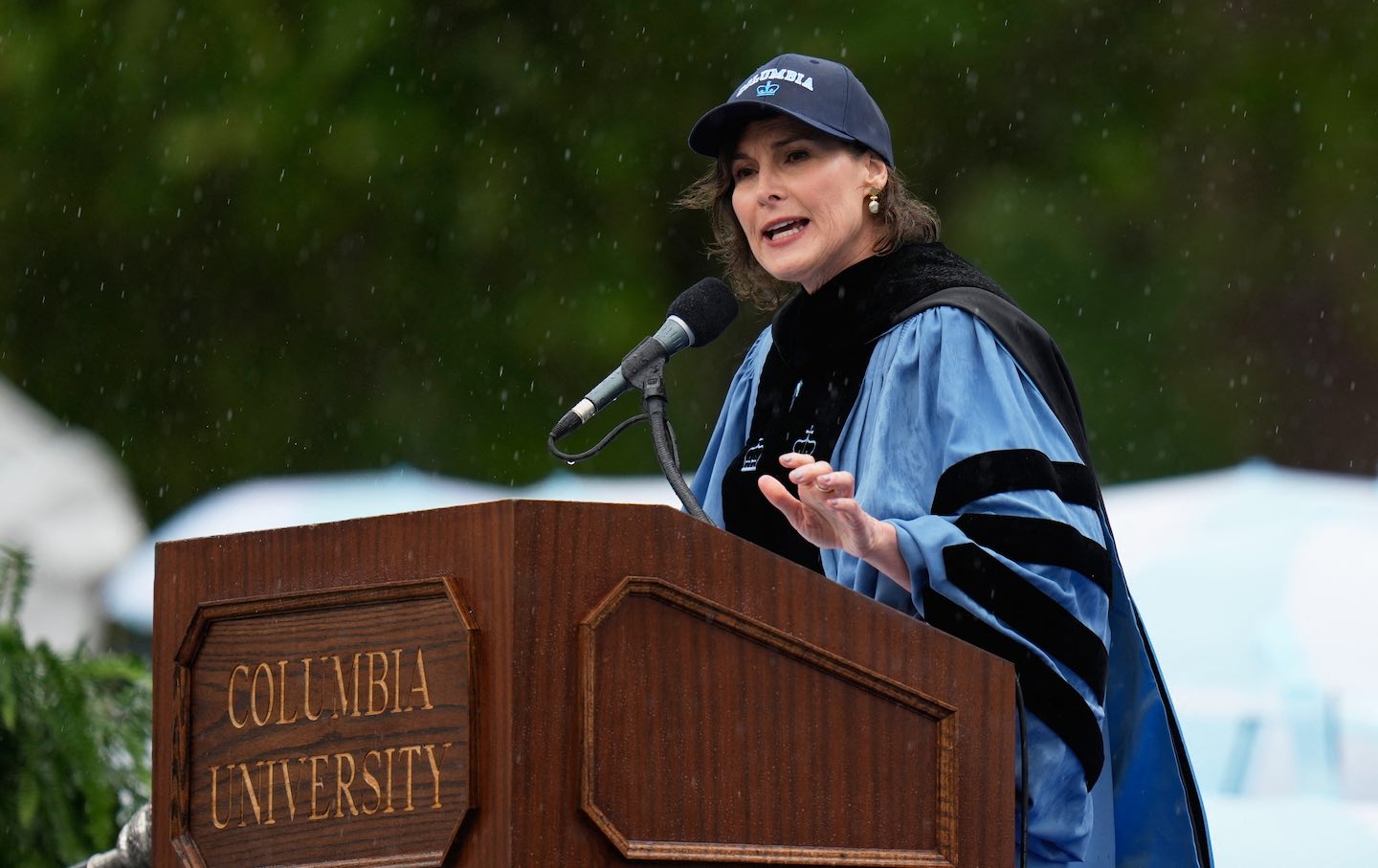
The university agreed to a $221 million payout, tacitly conceding spurious right-wing conspiracy theories about higher education.
Chris Lehmann
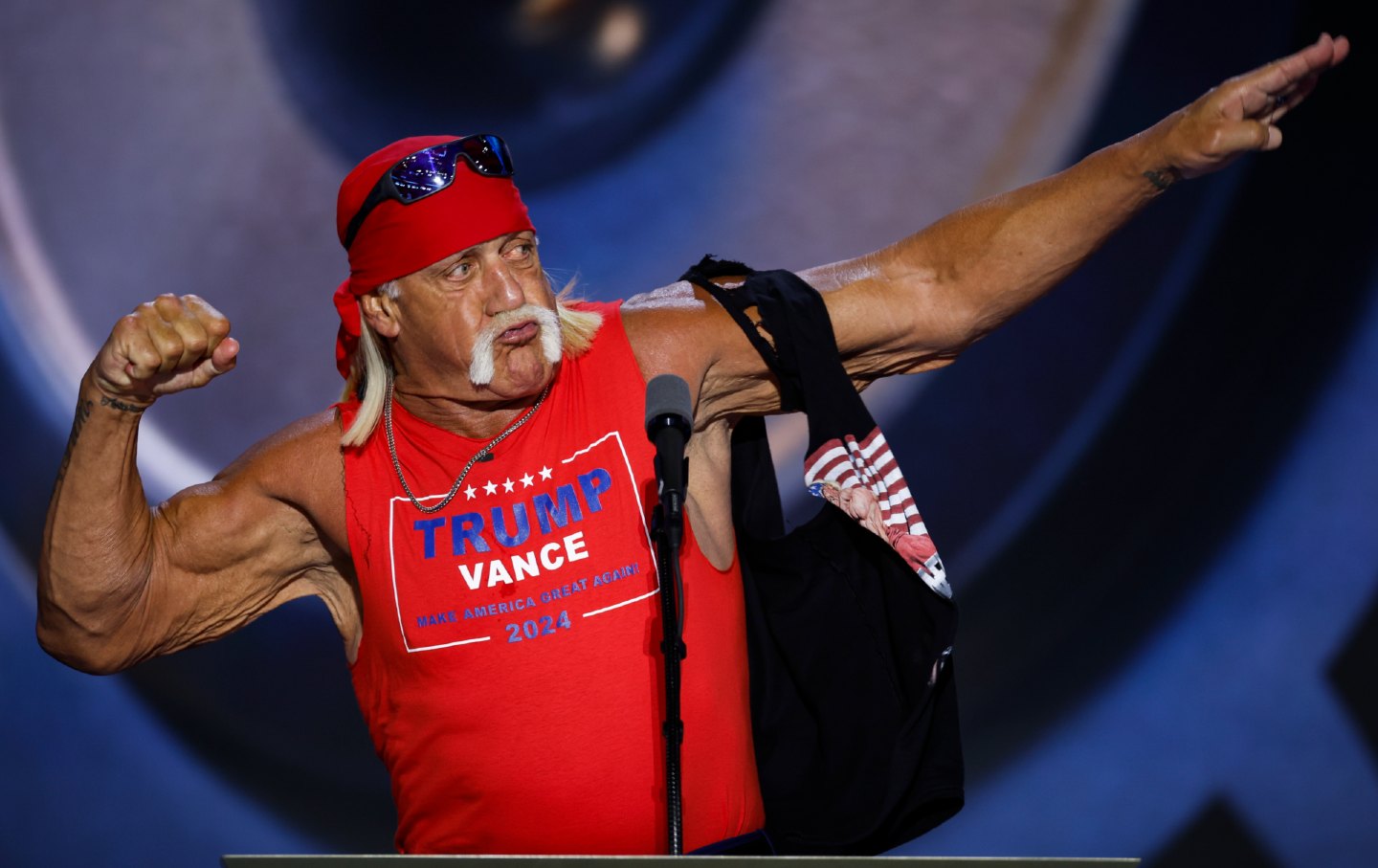
In the 1980s, the professional wrestler portrayed himself as an all-American hero—but he was really a “jabroni” the entire time.
Obituary
/
Dave Zirin
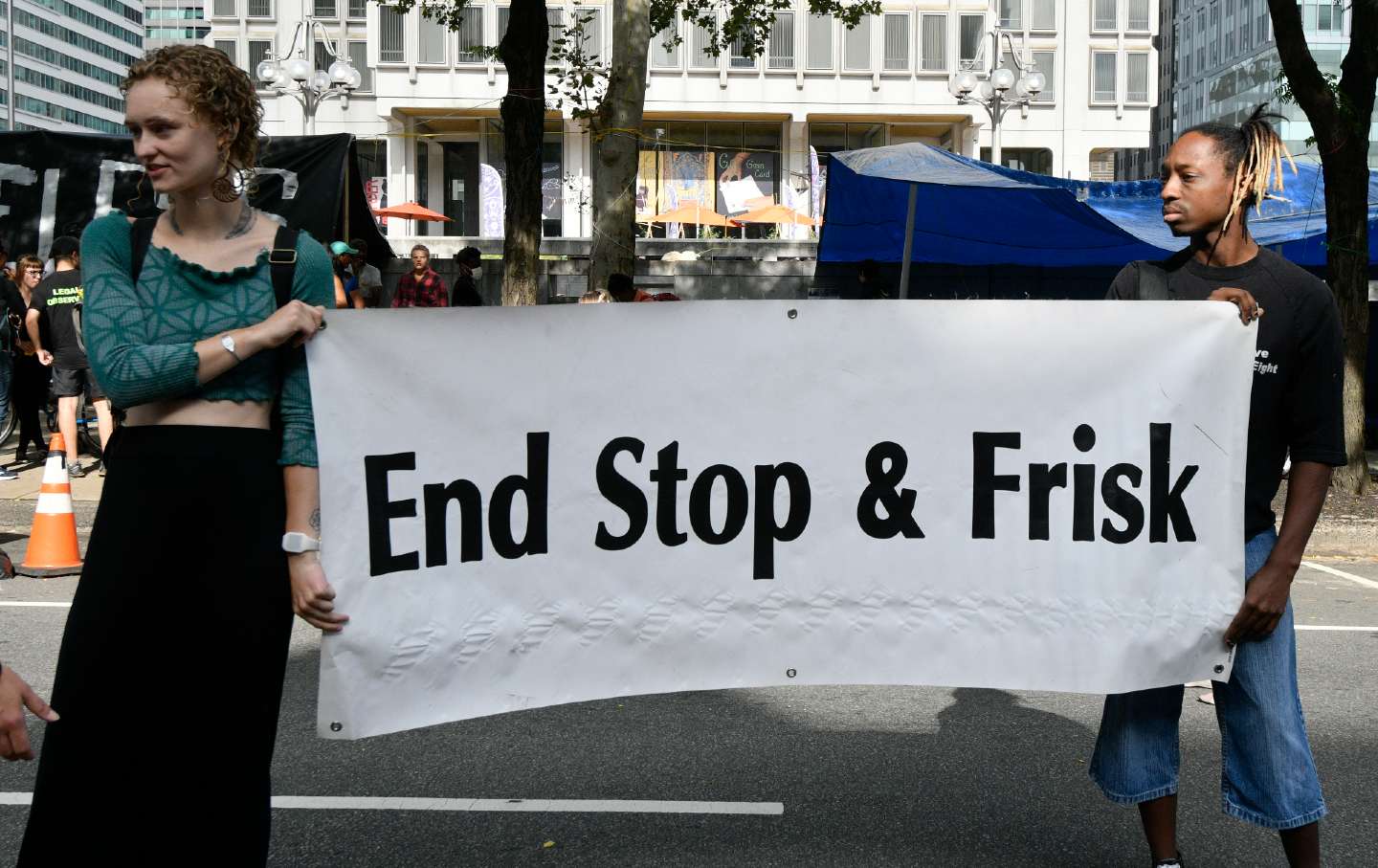
The ruling makes clear, however, that cops can still stop and frisk a person for existing while Black.
Elie Mystal
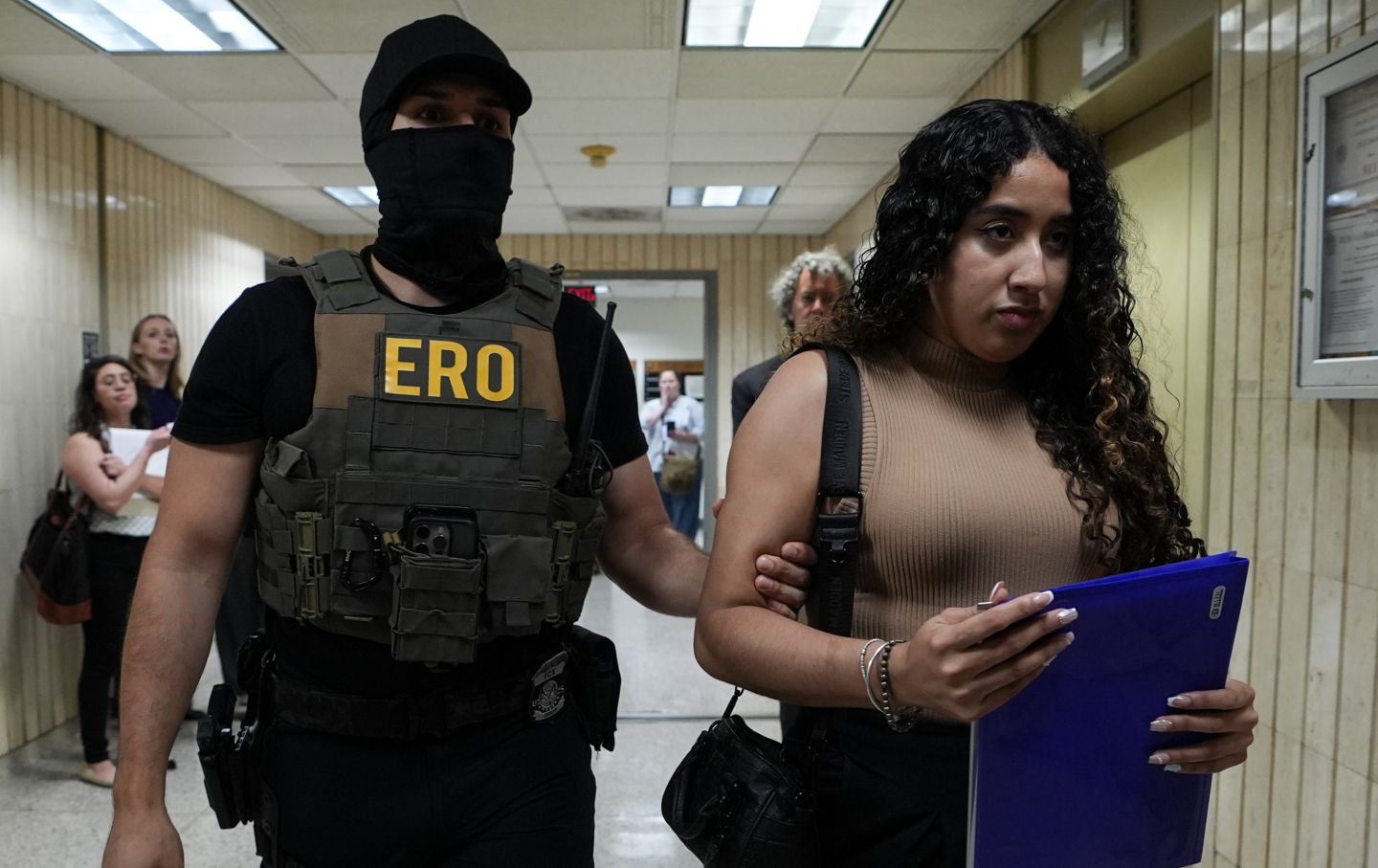
Migrants who show up for their court dates now routinely face arrest by ICE. But failing to appear triggers a deportation order.
Eileen Markey

How a bigoted doctor, an extremist judge, and the Supreme Court all combined to give the secretary a powerful new way to undermine public health.
Gregg Gonsalves


